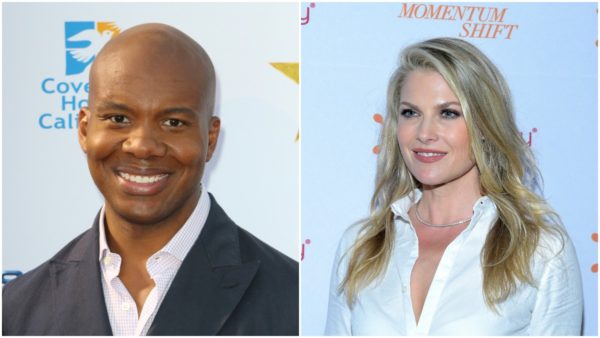As Hollywood attempts to rectify its biased and often racist culture, more stars are beginning to tell their stories hoping that real change can be implemented for the next class of talent, even if change doesn’t happen for them.
Actor Leonard Roberts, perhaps best known for his role as the play-by-the-rules percussion leader from the movie “Drumline,” a 2002 coming-of-age film that spotlights the world of college marching bands, recently opened up about what he describes as his experience with racism and how it nearly ruined everything he’d worked toward.

In a guest essay for Variety, the 48-year-old reflected on being fired from the 2006 to 2007 NBC series “Heroes,” and, as Roberts details, how his main co-star Ali Larter played a considerable role in his dismissal.
Roberts revealed that when it came time for Larter and him to do an intimate scene, the actress reportedly threw a temper tantrum. He says that wasn’t the case when Larter was put in a similar situation with a white man.
“[My character] D.L. Hawkins was in an interracial marriage with Niki Sanders, a white woman played by Ali Larter. The script suggested D.L. and Niki had a volatile relationship — and it wasn’t long before art was imitating life, with me on the receiving end of pushback from my co-star regarding the playing of a particularly tense scene,” Roberts wrote.
The actor explained that coming from a theater background, he was familiar with the discomfort that may arise out of an intense scene and assured his co-worker that everything he did on set was out of respect and “commitment to doing exceptional work” with a note and a bottle of wine. “Neither the gift nor the note was ever acknowledged,” Roberts explained.
He continued, “On another occasion, during the staging of a bedroom scene, my co-star took umbrage with the level of intimacy being suggested between our characters. In a private rehearsal, Greg Beeman, our director, asked if she was willing to lower the straps of the top she was wearing and expose her bare shoulders only above the sheet that covered her, in order to give the visual impression she was in the same state of undress as me, as I was shirtless.”
Larter, however, declined the director’s request, and it was then, Roberts said, he became “instantly aware of the tension on the set.” He added,“ I remember instinctively checking to make sure both my hands were visible to everyone who was there, as not to have my intentions or actions misconstrued.”
Roberts explained that shortly afterward, his co-star demanded a meeting with Beeman and the other producers who were on set and proceeded to have a “tense and loud conversation in which she expressed she had never been so disrespected — as an actress, a woman or a human being.”
The “Buffy the Vampire Slayer” actor had only been in one episode, with Larter having worked on the show for a month at that point. Larter had shot a similar scene with a white actor, Adrian Pasdar. When Roberts asked Pasdar if his occurrence with Larter was identical, he “replied to the contrary, and mentioned her openness to collaboration and even improvisation.”
Roberts said he “couldn’t help wondering whether race was a factor.” Ultimately he was written off the show before the end of the first season, but the gaslighting continued. Roberts said at one point his castmates asked, “Can you really say you lost your job because you’re Black? C’mon, man. They’re gonna always keep the hot blonde on the show. That’s just Hollywood.”
In a statement to Variety, Larter seemingly apologized for what the actor went through, stating, “I am deeply saddened to hear about Leonard Roberts’ experience on “Heroes,” and I am heartbroken reading his perception of our relationship, which absolutely doesn’t match my memory nor experience on the show.” She added, “I respect Leonard as an artist and I applaud him or anyone using their voice and platform. I am truly sorry for any role I may have played in his painful experience during that time and I wish him and his family the very best.”